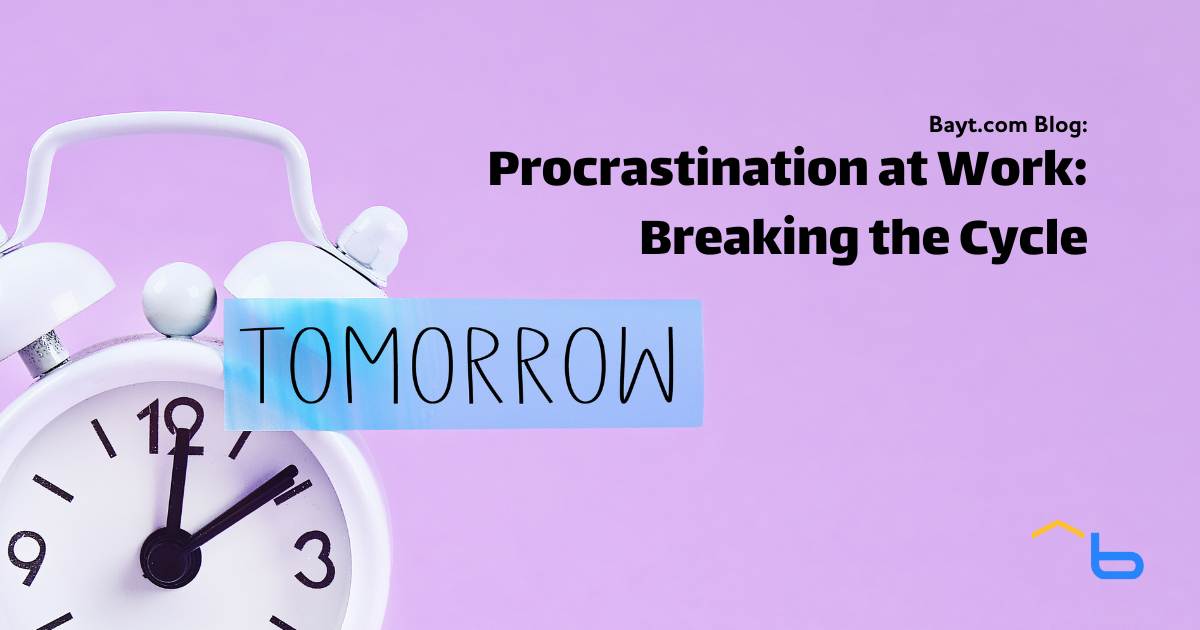
Your day begins, your to-do list is ready, your goals are set, and you've got the energy of a thousand suns... but suddenly, the allure of scrolling through cat memes or organizing your kitchen drawers becomes irresistible. Ah, procrastination—the sneaky little monster that sidetracks us from our grand plans. And if procrastination were a game, consider this your cheat sheet. We're diving into the wonderful world of overcoming procrastination, armed with strategies that are super efficient and effective.
What is procrastination and what causes it?
Procrastination is the act of delaying or postponing tasks or activities, often despite knowing that doing so may lead to negative consequences. It involves voluntarily choosing to put off tasks that need to be completed, usually in favor of more immediate and less important activities.
Procrastination can manifest in various ways, such as avoiding starting a task altogether, delaying work on a task until the last possible moment, or getting easily distracted when attempting to work on a task. It is a common behavior experienced by people across all ages and backgrounds and can occur in both personal and professional settings.
While procrastination might provide temporary relief from feelings of stress or discomfort associated with certain tasks, it often leads to increased stress, anxiety, and a sense of guilt or frustration as deadlines approach. Over time, chronic procrastination can also hinder personal and professional growth, as important tasks are repeatedly pushed aside, resulting in missed opportunities and unfulfilled potential.
Understanding the root causes of procrastination, such as fear of failure, perfectionism, lack of motivation, or poor time management skills, is essential for effectively addressing and overcoming this behavior. By implementing strategies to manage these underlying factors and develop productive habits, individuals can reduce procrastination and improve their ability to accomplish their goals efficiently.
Here are some tips tailored specifically to defeat procrastination in the workplace:
- Create a vibrant workspace: Surround yourself with things that inspire and motivate you. Whether it's a plant, inspiring quotes, or pictures of your favorite vacation spot, a visually appealing workspace can energize you and make work feel less daunting.
- Set clear objectives: Establishing clear goals and priorities for each day or week helps focus your efforts. When you know exactly what needs to be accomplished, it's easier to avoid procrastination.
- Break tasks into manageable chunks: Large projects can be overwhelming, leading to procrastination. Break them down into smaller, actionable steps. Tackling one step at a time makes progress feel more achievable and reduces procrastination.
- Prioritize tasks: Not all tasks are created equal. Use techniques like the Eisenhower Matrix to categorize tasks based on their urgency and importance. Focus on high-priority tasks first to prevent procrastination on critical work.
- Set deadlines (even imaginary ones): Deadlines create a sense of urgency and help prevent procrastination. If a task doesn't have a set deadline, create one for yourself. Even artificial deadlines can spur action and keep procrastination at bay.
- Limit distractions: Identify common distractions in your workplace and take steps to minimize them. This might involve silencing notifications, setting specific times for checking emails or using noise-canceling headphones to block out background chatter.
- Use time management techniques: Experiment with time management techniques like the Pomodoro Technique or time blocking. Breaking your workday into focused intervals can increase productivity and reduce procrastination.
- Find your peak productivity hours: Pay attention to your natural energy rhythms and schedule your most challenging tasks during your peak productivity hours. Capitalizing on your peak energy levels can help you overcome procrastination and tackle tasks more efficiently.
- Accountability partners: Share your goals and deadlines with a colleague or supervisor who can help hold you accountable. Knowing that someone else is aware of your commitments can increase motivation and reduce procrastination.
- Take breaks strategically: Schedule regular breaks throughout your day to rest and recharge. Short breaks can help prevent burnout and maintain focus, reducing the temptation to procrastinate.
- Reward yourself: Celebrate your accomplishments, no matter how small. Rewarding yourself for completing tasks can reinforce positive behavior and motivate you to stay on track.
- Practice positive self-talk: Replace negative self-talk with positive affirmations. Remind yourself of past successes and your ability to overcome challenges. Positive self-talk can boost confidence and reduce procrastination.
- Visualize success: Take a moment to visualize yourself completing tasks successfully. Imagine how you'll feel once the work is done and the sense of accomplishment you'll experience. Visualization can increase motivation and reduce procrastination.
- Reflect and adjust: Regularly review your progress and identify any patterns of procrastination. Adjust your strategies as needed to address specific challenges and maintain momentum.
- Seek support: Don't hesitate to seek support from colleagues, mentors, or resources within your organization. Sometimes, discussing challenges openly can lead to valuable insights and support in overcoming procrastination.
Be patient with yourself and stay committed to implementing these strategies consistently. With time and practice, you'll build habits that support greater productivity and success in the workplace.
Explore our blog for more expert insights and career growth tips!
